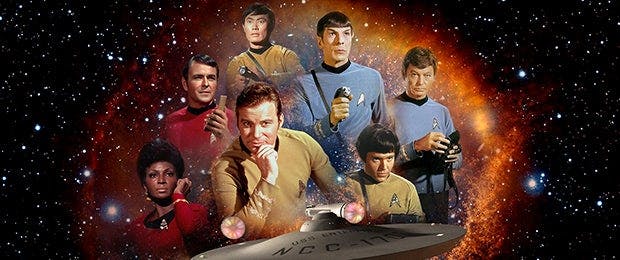Published Jun 24, 2015
Trekspectives: A Journey of Fandom
Trekspectives: A Journey of Fandom

StarTrek.com is pleased to welcome C Bryan Jones of Trek.fm to our stable of regular guest bloggers. Today, Jones introduces himself and his new column, Trekspectives.
Every story has a beginning. Mine starts in my great grandparents’ living room. No, I wasn’t born there; but my Star Trek fandom was. My first encounter with the five-year mission of the Starship Enterprise occurred while sitting in front of the kind of television you never see today. This was as much a piece of furniture with a screen tacked on the front as a piece of home electronics. Heavy, wooden, bulky. Clearly not suited for the bridge of a starship. But Kirk had his viewscreen, and I had mine—a window to another world. As a five-year-old, I was captivated by these adventures.Around this same time, another adventure in a galaxy far, far away was landing on the big screen. I fell in love with that, too. For the next six or seven years, my fandom was split. But as I became a teenager, the core of Star Trek began speaking to me more loudly, with a force that could not be overcome. This core is the social commentary that powers Gene Roddenberry’s vision. Our teenage years are such a formative time, and as my view of the world began to change, the action-adventure veneer of Star Trek peeled away to reveal a layer of deeper exploration. Kirk and Spock weren’t just exploring strange new worlds, they were exploring us.


C Bryan Jones is founder and publisher of the Trek.fm podcast network, host of The Ready Room and Hyperchannel, and co-host of The Orb: A Star Trek Deep Space Nine Podcast. Here on Earth, he’s also Editor-In-Chief of Metropolis, a city life and entertainment magazine in Tokyo. And when prattling on there isn’t enough, he turns to Twitter (@cbryanjones) and his personal website cbryanjones.com.

